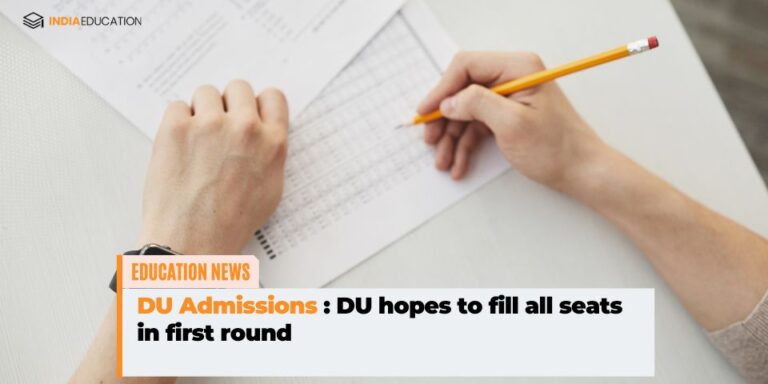
DU Admissions : DU hopes to fill all seats in first round
Parijat Chauhan
- October 21, 2022
- 9:07 am
- Last Updated: October 21, 2022
- 4:46 pm
The university has 70,000 undergraduate seats on offer across all courses and colleges. In the first round, they’ve made 20% allocations to those in the unreserved, OBC and EWS categories, and 30% to those in SC, ST and PWBD categories.

The Delhi University administration hopes that they’ll fill all of the undergraduate seats in the first round of seat allocations.
In the first round, the university has made 20% more seats available in each college for those from the unreserved, OBC and EWS categories and 30% more seats for SC, ST and PWBD. This means that over 60,000 candidates have accepted their allocations to a total of 70,000 undergraduate seats. After this round concludes, colleges will be required to approve or reject applicants based on documents submitted by applicants.
“The extra allocation had been made in the expectation that the final intake should stabilise around the final numbers after withdrawals and rejections. There have been issues in the past about filling seats in reserved categories. It doesn’t seem as if there are many reasons for students to withdraw their admissions since medical admissions have already happened. What is likely is that if seats remain vacant, they are likely to be in courses with very few students opting for them, such as Sanskrit,” said Registrar Vikas Gupta.

Universities were not able to share their numbers on how many applications have been accepted or denied so far. However, Gupta was informed of cases where candidates were rejected for writing the CUET in topics that they did not take in class XII. “The central admissions team will also review some of those rejections to see if the reason is valid,” he said.
Latest News
People Reading Now

CBSE Compartment Result 2023 OUT: Click For Direct Link



CSAB 2023: Special Round Registration Begins Today


